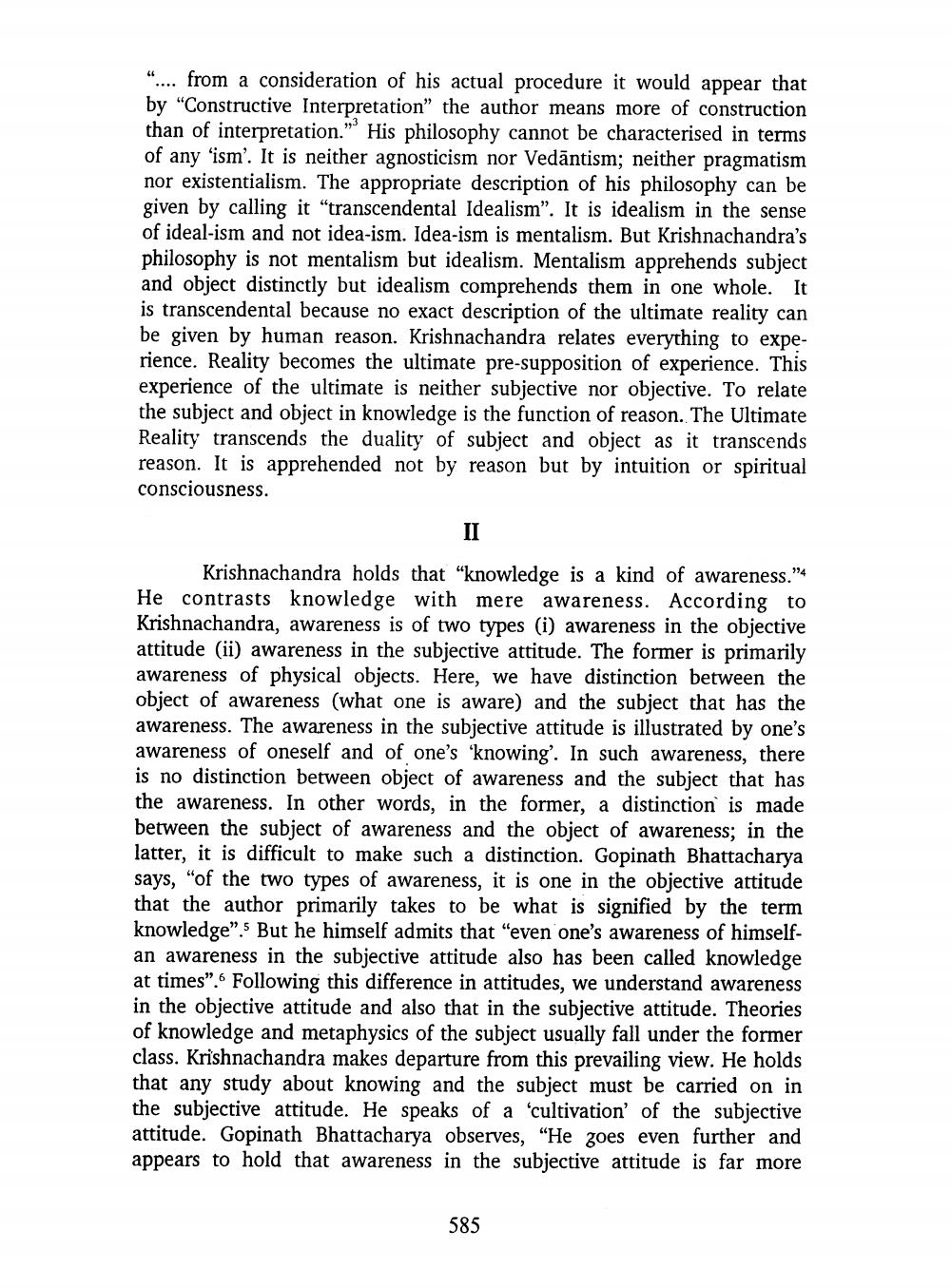________________
".... from a consideration of his actual procedure it would appear that by "Constructive Interpretation" the author means more of construction than of interpretation." His philosophy cannot be characterised in terms of any 'ism'. It is neither agnosticism nor Vedāntism; neither pragmatism nor existentialism. The appropriate description of his philosophy can be given by calling it "transcendental Idealism". It is idealism in the sense of ideal-ism and not idea-ism. Idea-ism is mentalism. But Krishnachandra's philosophy is not mentalism but idealism. Mentalism apprehends subject and object distinctly but idealism comprehends them in one whole. It is transcendental because no exact description of the ultimate reality can be given by human reason. Krishnachandra relates everything to experience. Reality becomes the ultimate pre-supposition of experience. This experience of the ultimate is neither subjective nor objective. To relate the subject and object in knowledge is the function of reason. The Ultimate Reality transcends the duality of subject and object as it transcends reason. It is apprehended not by reason but by intuition or spiritual consciousness.
Krishnachandra holds that “knowledge is a kind of awareness."4 He contrasts knowledge with mere awareness. According to Krishnachandra, awareness is of two types (i) awareness in the objective attitude (ii) awareness in the subjective attitude. The former is primarily awareness of physical objects. Here, we have distinction between the object of awareness (what one is aware) and the subject that has the awareness. The awareness in the subjective attitude is illustrated by one's awareness of oneself and of one's 'knowing'. In such awareness, there is no distinction between object of awareness and the subject that has the awareness. In other words, in the former, a distinction is made between the subject of awareness and the object of awareness; in the latter, it is difficult to make such a distinction. Gopinath Bhattacharya says, "of the two types of awareness, it is one in the objective attitude that the author primarily takes to be what is signified by the term knowledge”.5 But he himself admits that “even one's awareness of himselfan awareness in the subjective attitude also has been called knowledge at times". Following this difference in attitudes, we understand awareness in the objective attitude and also that in the subjective attitude. Theories of knowledge and metaphysics of the subject usually fall under the former class. Krishnachandra makes departure from this prevailing view. He holds that any study about knowing and the subject must be carried on in the subjective attitude. He speaks of a 'cultivation of the subjective attitude. Gopinath Bhattacharya observes, "He goes even further and appears to hold that awareness in the subjective attitude is far more
585




